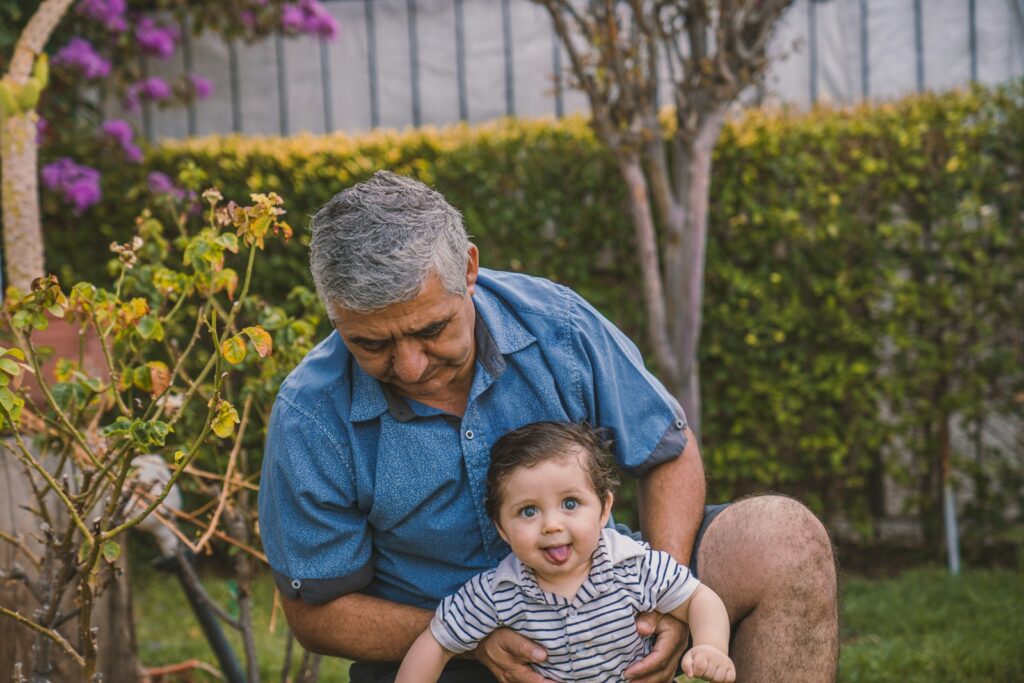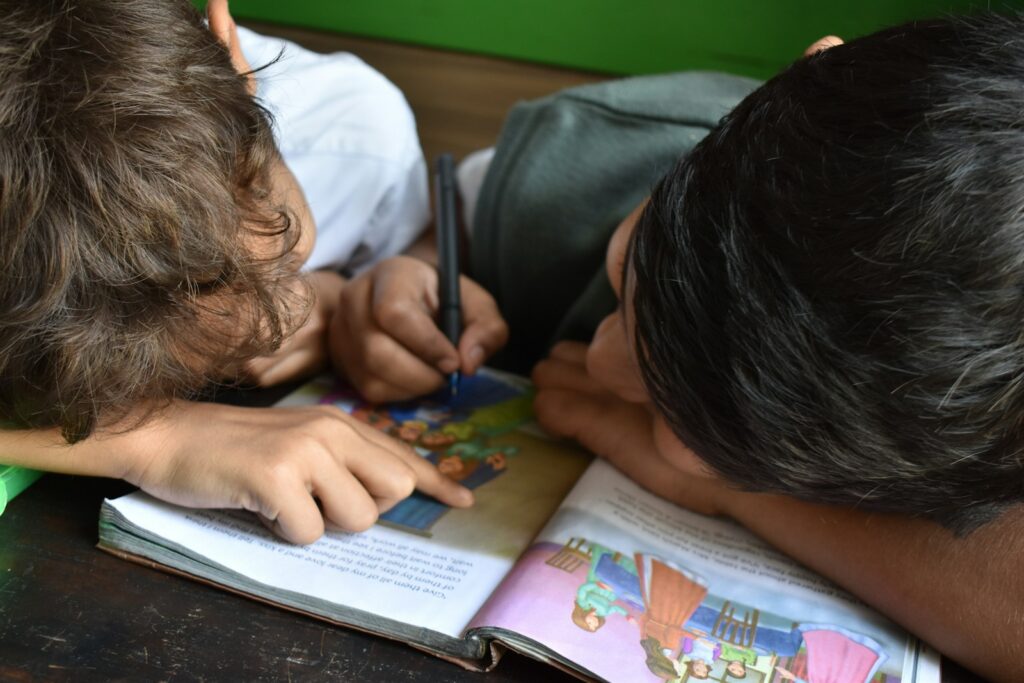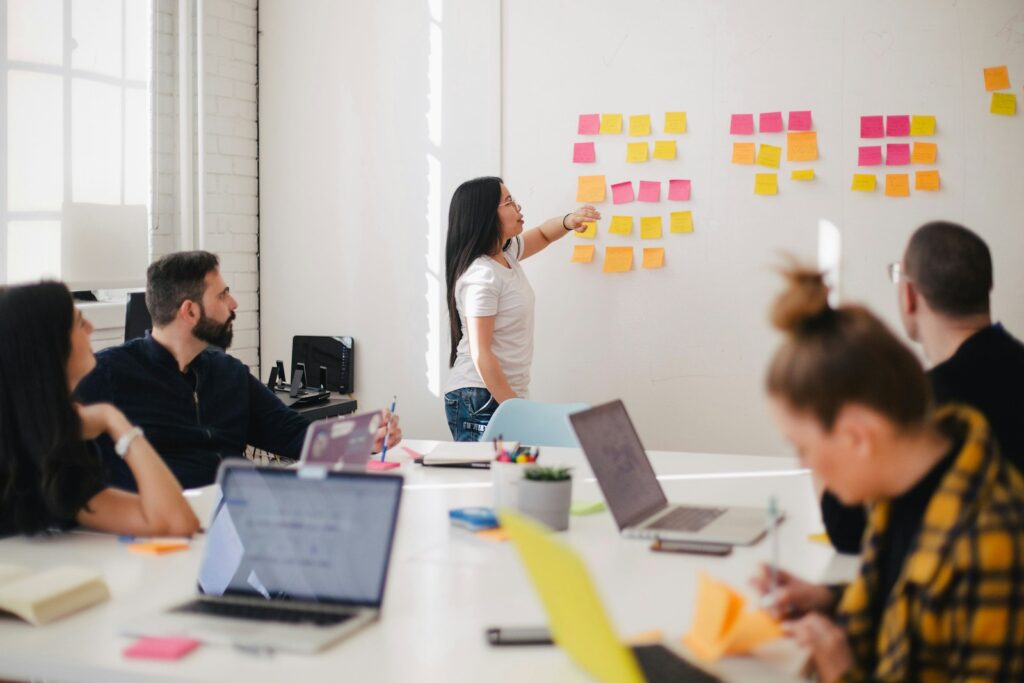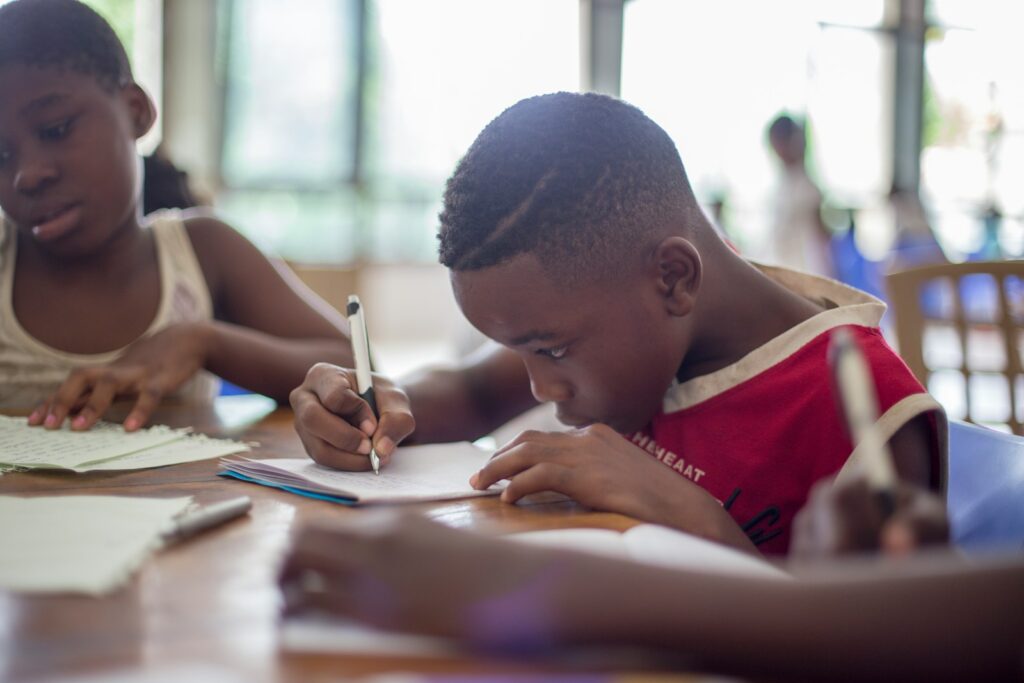If you’re reading this post, you most likely already have the impression that learning languages early is fascinating.
But guess what?
It’s not just fascinating, it is transformative!
In this post, I’m will talk more about the game-changing benefits of learning languages from a young age.
Now, before you start picturing stuffy classrooms and endless grammar drills, let me assure you that this journey is anything but dull. We’re about to unravel a world of different cultures, super brain powers, and tons of cool opportunities that come with learning languages early.
So, grab your metaphorical passport, buckle up, and get ready to explore the magic of learning languages early.
We’re about to uncover how being bilingual can make your brain do amazing things, discover how language helps make us who we are, and maybe even pick up a few phrases along the way.
Smart Thinking: How Learning Languages Early Makes Your Brain Stronger

Learning languages when you’re young is like giving your brain a workout! It helps you remember things better, pay more attention, and figure out problems easier.
This makes you smarter in school and in life!
Research shows that kids are natural language learners. They can learn two languages at once without getting mixed up.
Many people used to think there was a time when you couldn’t learn new languages anymore. They called it a “critical period.” But now, researchers aren’t so sure about that.1
Honestly, you can learn languages at any age! The important thing is to start early if you CAN. The earlier you start, the easier it is to learn. BUT even if you’re older, it’s NEVER too late to learn a new language!
So, whether you’re 5 or 95, if you want to learn a different language, go for it!
Remember, it’s never too late to give your brain a good workout!
Flexible Brains: Early Language Learning Makes Your Brain More Flexible!

Imagine your brain is like a big, flexible sponge. It can soak up many new things, especially when you’re young. Scientists call this “neuroplasticity.”
Kids have super flexible brains, making it easier to learn new languages without much effort. As you get older, learning new languages becomes a bit harder because your brain isn’t as flexible anymore.
Scientists wanted to know how learning a second language early in life affects the brain. One study found that babies who hear two languages from the start are better at controlling their thoughts and actions. 2 Even before they can talk, they are better at switching their attention.3
This is important for understanding how babies learn languages and how their brains develop.
Another study studied three groups of adults who spoke both English and French. Some learned both languages at the same time when they were kids, some learned English first, then French, and some learned French first, then English.4
They found out that people who learned English first had an easier time telling apart different sounds in English than those who learned French first. 5 Even their brains showed this difference!
The scientists also saw that the way the brain reacts to sounds stays the same from young adulthood, no matter how much of each language someone heard when they were little. 6 So, learning a second language early doesn’t just help you speak it better, it also changes how your brain hears sounds, how you control your thoughts and actions, and how you focus on what others are saying!
Now, as people get older, it’s important to keep their brains sharp. Some studies suggest that learning a second language later in life might help with that. Scientists looked at many studies where older folks learned a new language. They found that it could improve things like attention, memory, and even how the brain works. 7
Even though not all the studies agreed, it seems like learning a new language can be good for your brain no matter when you start!
Say it Right: Learning Languages Early Helps You Say Words Correctly

Part of the reason why it is tougher for older people to soak up new words and sounds is because our native language starts to shape how we talk, making it harder to sound like a local in another language.
Scientists used to think the best time to start was around 8 years old, but now they say you can still get good at a new language up until you’re 18. To figure this out, scientists asked over half a million people to take a fun online quiz that would guess where they were from based on their English skills.
It became super popular and people loved sharing their results.
The quiz showed that kids learn a new language best before age 10, but you can still get pretty good until age 18. After that, it’s tough to sound just like a native speaker.8
So, why does it get harder once you reach 18?
Well, when you’re 18, life gets busier with college or work, so there’s less time to practice. Plus, the language you know might mess with learning a new one. Also, your brain changes as you become an adult, which might make it harder to learn new grammar rules.
But don’t worry!
Even if you’re older, you can still learn a new language, especially if you immerse yourself in it by living where it’s spoken. It might take a long time, though.
Learning About Other Cultures: Early Language Learning Helps You Understand Different People and Places

When kids learn different languages, they also learn about different cultures, like the food they eat and the holidays they celebrate. This helps them understand and appreciate people who are different from them.
For example, if you’ve ever felt like you didn’t fit in somewhere, you might understand how someone else feels in the same situation. Learning about other cultures can make us more understanding and kind to others.
So, when we learn a new language, we also learn to accept and appreciate new ideas and ways of doing things. This makes people from different backgrounds feel more welcome and accepted in our communities.
School Success: Early Learning Languages Helps You Do Better in School

Early on, when kids start learning languages, they get better at school in areas such as reading, math, and solving problems. This allows them to do well in school as they grow up.
When kids start kindergarten, how good they are at language, math, reading, and other things is super important. It indicates how well they’ll do in school later on.
Some research looked at how different skills when kids start school are connected to how well they do later on. But there’s still a lot we don’t know about this.
This study used data from a big group of kids to see how being ready for school in lots of ways, like knowing language, math, and other things, helps kids do better in school over time.9
The study found out that looking at all these skills together is really important.
Also, it’s not just about how good kids are at the start of school, but also how much they IMPROVE over time. This can help teachers and policymakers figure out the best ways to help kids succeed in school.
Dream Jobs: Unlocking Cool Jobs with Early Language Learning

Learning more than one language can help you find really cool jobs in different places around the world.
Imagine working with people from other countries, talking to them, and understanding what they’re saying.
That’s what knowing multiple languages can do for you!
It can help you get jobs in businesses that work internationally, like big companies that sell things all over the world, or in jobs where you need to talk to people from different countries, like being a diplomat or working in tourism.
If you start learning languages when you’re young, like in elementary school, it’s like getting a head start. You’ll have a better chance of becoming really good at speaking those languages. And when you’re really good at speaking different languages, it makes you more attractive to employers.
They’ll see that you can talk to people from many different places, making you stand out when you’re looking for a job in the big, wide world!
Healthy Brains: Learning Languages Early Keeps Your Brain Healthy

When people get older, sometimes they have trouble with their memory and thinking because of a disease called Alzheimer’s. But studies suggest that if you speak two languages, you might have a lower risk of getting Alzheimer’s disease, or you might show symptoms later than people who only speak one language.10
Scientists think that speaking two languages makes your brain stronger and more resilient.
It’s like doing different activities that challenge your brain, such as reading or playing games. This extra brain activity helps keep your brain in good shape as you age.
When you speak two languages, your brain has to work extra hard.11 This might help create new brain cells, build more connections between brain cells, and make different parts of your brain work together better.12
Even though being bilingual won’t fix everything, it’s a fun and helpful way to keep your brain in tip-top shape as you grow older!
Making Friends: Learning Languages Early Helps You Make More Friends

Learning languages helps kids talk with lots of different people and make friends.
When kids learn more than one language, they can talk to people from different places and understand their cultures better. This makes them good at making friends and getting along with others.
Studies show that when kids know more than one language, they can make friends with people who speak that language too. Even if they’re younger or don’t speak the same first language! It’s like having a special bond.
And guess what?
Older kids tend to have more friends who speak the same language. 13 But it’s not just about the language. Things like being nice and fair at school can also affect who becomes friends. 14
Boys and girls make friends in different ways too. 15
Also, kids who speak English at home might be more popular with their friends.16
So, by learning languages early, you’re not just learning words, you’re opening doors to making lots of new friends!
Keeping Traditions Alive: Learning Languages Early Helps You Keep Your Family’s Traditions Alive

Learning languages early is important for keeping your family’s unique way of speaking and history alive.
It’s like finding a giant treasure chest full of precious things when you learn the language your family speaks or the languages your ancestors spoke. Knowing this other language is like having a superpower! This power helps you understand your family’s history and traditions better.
Families talking and telling stories in their own language makes everyone feel closer. This makes your family ties even stronger, and it helps keep your cultural traditions alive.
When kids learn their family’s native language or the languages from their ancestors while they’re young, it helps them understand and stay connected to where their cultural roots. It may inspire them to search for more information about their family’s country of origin and become more knowledgeable about the different topics related to their culture.
Thus, they are more likely to feel a connection and a sense of acceptance to their ethnic and cultural identities.
Citations
- Byers-Heinlein K, Lew-Williams C. Bilingualism in the Early Years: What the Science Says. Learn Landsc. 2013 Fall;7(1):95-112. PMID: 30288204; PMCID: PMC6168212. ↩︎
- Kovács AM, Mehler J. Cognitive gains in 7-month-old bilingual infants. Proc Natl Acad Sci U S A. 2009 Apr 21;106(16):6556-60. doi: 10.1073/pnas.0811323106. Epub 2009 Apr 13. PMID: 19365071; PMCID: PMC2672482. ↩︎
- Kovács AM, Mehler J. Cognitive gains in 7-month-old bilingual infants. Proc Natl Acad Sci U S A. 2009 Apr 21;106(16):6556-60. doi: 10.1073/pnas.0811323106. Epub 2009 Apr 13. PMID: 19365071; PMCID: PMC2672482. ↩︎
- Giroud N, Baum SR, Gilbert AC, Phillips NA, Gracco V. Earlier age of second language learning induces more robust speech encoding in the auditory brainstem in adults, independent of amount of language exposure during early childhood. Brain Lang. 2020 Aug;207:104815. doi: 10.1016/j.bandl.2020.104815. Epub 2020 Jun 11. PMID: 32535187. ↩︎
- Giroud N, Baum SR, Gilbert AC, Phillips NA, Gracco V. Earlier age of second language learning induces more robust speech encoding in the auditory brainstem in adults, independent of amount of language exposure during early childhood. Brain Lang. 2020 Aug;207:104815. doi: 10.1016/j.bandl.2020.104815. Epub 2020 Jun 11. PMID: 32535187. ↩︎
- Giroud N, Baum SR, Gilbert AC, Phillips NA, Gracco V. Earlier age of second language learning induces more robust speech encoding in the auditory brainstem in adults, independent of amount of language exposure during early childhood. Brain Lang. 2020 Aug;207:104815. doi: 10.1016/j.bandl.2020.104815. Epub 2020 Jun 11. PMID: 32535187. ↩︎
- Ware C, Dautricourt S, Gonneaud J, Chételat G. Does Second Language Learning Promote Neuroplasticity in Aging? A Systematic Review of Cognitive and Neuroimaging Studies. Front Aging Neurosci. 2021 Nov 12;13:706672. doi: 10.3389/fnagi.2021.706672. PMID: 34867264; PMCID: PMC8633567. ↩︎
- Smith, D. G. (2018, May 4). At What Age Does Our Ability to Learn a New Language Like a Native Speaker Disappear? Scientific American. Retrieved March 17, 2024, from https://www.scientificamerican.com/article/at-what-age-does-our-ability-to-learn-a-new-language-like-a-native-speaker-disappear/ ↩︎
- Pace, A., Alper, R., Burchinal, M. R., Michnick Golinkoff, R., & Hirsh-Pasek, K. (2019). Measuring success: Within and cross-domain predictors of academic and social trajectories in elementary school (pp. 112-125). Ohio State University. https://doi.org/10.1016/j.ecresq.2018.04.001 ↩︎
- Anderson, J.A.E., Hawrylewicz, K. & Grundy, J.G. Does bilingualism protect against dementia? A meta-analysis. Psychon Bull Rev 27, 952–965 (2020). https://doi.org/10.3758/s13423-020-01736-5 ↩︎
- Kim, S., Jeon, S. G., Nam, Y., Yoo, H., & Moon, M. (2019). Bilingualism for Dementia: Neurological Mechanisms Associated With Functional and Structural Changes in the Brain. Frontiers in Neuroscience, 13. https://doi.org/10.3389/fnins.2019.01224 ↩︎
- Kim, S., Jeon, S. G., Nam, Y., Yoo, H., & Moon, M. (2019). Bilingualism for Dementia: Neurological Mechanisms Associated With Functional and Structural Changes in the Brain. Frontiers in Neuroscience, 13. https://doi.org/10.3389/fnins.2019.01224 ↩︎
- McLeod, S., Verdon, S. & Theobald, M. Becoming Bilingual: Children’s Insights About Making Friends in Bilingual Settings. IJEC 47, 385–402 (2015). https://doi.org/10.1007/s13158-015-0148-7 ↩︎
- Lee, L., Williams, A., Lao, C., Lagunas, N., & Langner, C. (2021). The role of home language in children’s friendship choice and peer acceptance. Journal of Applied Developmental Psychology, 76, 101323. https://doi.org/10.1016/j.appdev.2021.101323 ↩︎
- Lee, L., Williams, A., Lao, C., Lagunas, N., & Langner, C. (2021). The role of home language in children’s friendship choice and peer acceptance. Journal of Applied Developmental Psychology, 76, 101323. https://doi.org/10.1016/j.appdev.2021.101323 ↩︎
- Lee, L., Williams, A., Lao, C., Lagunas, N., & Langner, C. (2021). The role of home language in children’s friendship choice and peer acceptance. Journal of Applied Developmental Psychology, 76, 101323. https://doi.org/10.1016/j.appdev.2021.101323 ↩︎



